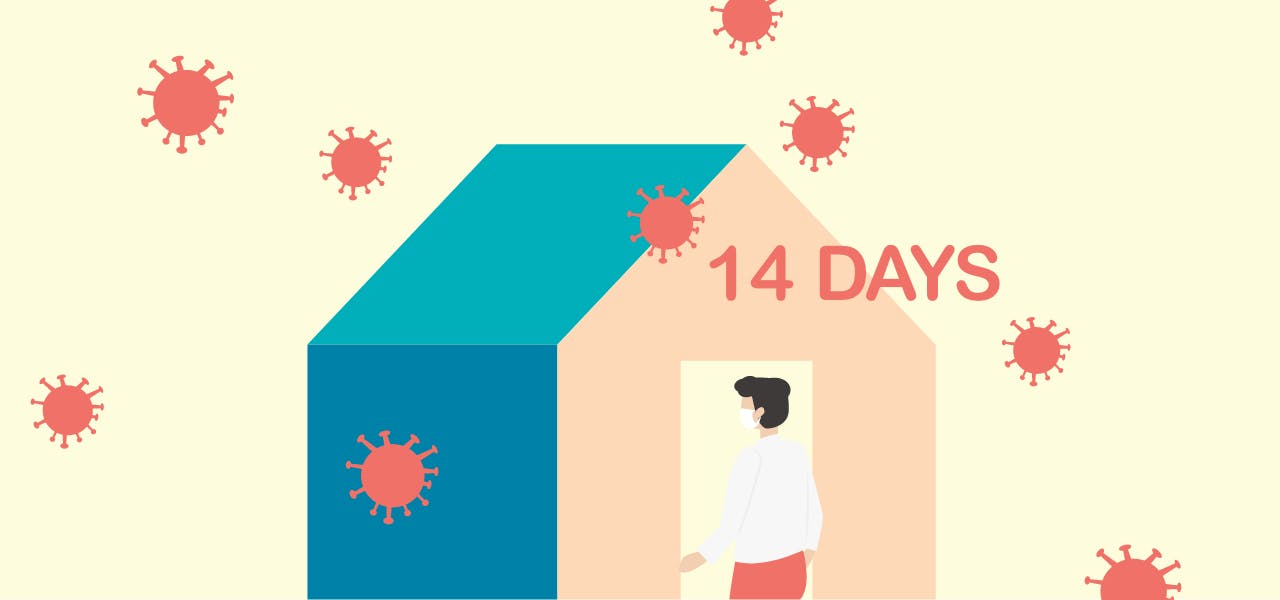The COVID-19 confusion continues to expand into the public sector as news of the Centers for Disease Control (CDC) calling for reduced quarantine time spreads. However, the truth is somewhat less black and white. Health officials are still recommending a 14-day quarantine for those potentially exposed with the virus, with a few exceptions.
The problem is that, for an already confused and scared general population, exceptions can be even more unsettling and divisive. This dissent frequently results in anger and frustration, although the intent of the updated recommendations was to reduce stress, not increase it. The bottom line is that the final stance of the CDC and other health experts remains a recommendation of a 14-day quarantine period for anyone who was potentially exposed to COVID-19, but to enforce this yourself requires an understanding of what quarantining means and when you are putting yourself and others at risk by not following the recommendations.
What Does Quarantining Really Mean?
The definition of quarantine is to be in “a state, period, or place of isolation in which people or animals that have arrived from elsewhere or been exposed to infectious or contagious disease are placed.” With the pandemic of COVID-19, people are confusing quarantining and isolating themselves, understandably so.
The differences are in the nuances. Isolation takes people who are already sick and separates them from those who are not. Quarantine, on the other hand, separates those who could have been exposed to something contagious and restricts their movements until a set period of time has gone by in which symptoms of the disease would have appeared.
Originally, when the virus first came out and scientists were unsure how it spread, anyone who might have been exposed was isolated as though they were definitely sick. Now, potential exposure means you can quarantine yourself, staying away from crowds and close contact with others to prevent inadvertently passing the disease on to them. It’s not isolation, but it is a precautionary measure that should be followed.
Why 14 Days is the Recommended Period
14 days is the going duration for the COVID-19 virus, but the number wasn’t arbitrarily picked. Every contagious disease has what’s called an incubation period in which someone exposed to the virus could possibly develop symptoms. Incubation periods are different in every virus, and people could develop symptoms earlier, later, or not at all during that time. The incubation period is used by health agencies like the CDC and the World Health Organization (WHO) to determine quarantine periods. With COVID-19, the incubation period is typically five days, with symptoms often not visible for 11 days. This means that most people won’t know they have the virus for at least five days, spreading it unwittingly, but by 11 days, if you’re going to have a symptom, it should have shown up. 14 days gives a little extra time to make sure you’re not spreading it to others.
How to Know if You Should Quarantine
Making the decision as to whether or not you should quarantine becomes an individual choice if it’s not cut and dried. If you’re not experiencing symptoms and have not already tested positive, but you’ve had close contact with someone who did have the virus, you should stay home and away from others for 14 days.
This quarantine period does have exceptions. If you’d already had the illness within the past three months and successfully recovered, and you’re not experiencing any shortness of breath, cough, or other COVID-19 symptoms, you can make the choice not to quarantine since you’re likely still in your immunity period.
In the work environment, if your employee (or you as an employee) was potentially exposed, you should remain home or in an isolated area to employ social distancing for the 14-day period, unless you fall under the exceptions listed above.
For those who are in quarantine and have gone through ten days with no symptoms and no positive test, the ten-day period is sufficient. In the event that a diagnostic test is negative after seven days and no symptoms are reported, the quarantine period can be ended with less risk of exposure.
Ultimately, it’s up to you to follow the guidelines and reduce your potential to get and give the virus to others. Until we flatten the curve, the spikes are going to be dangerous, and deadly, and the virus is going to continue to spread out of control. Consider the 14-day period as a snapshot in your otherwise healthy life, and your good deed to mitigate the spread and help save others.
